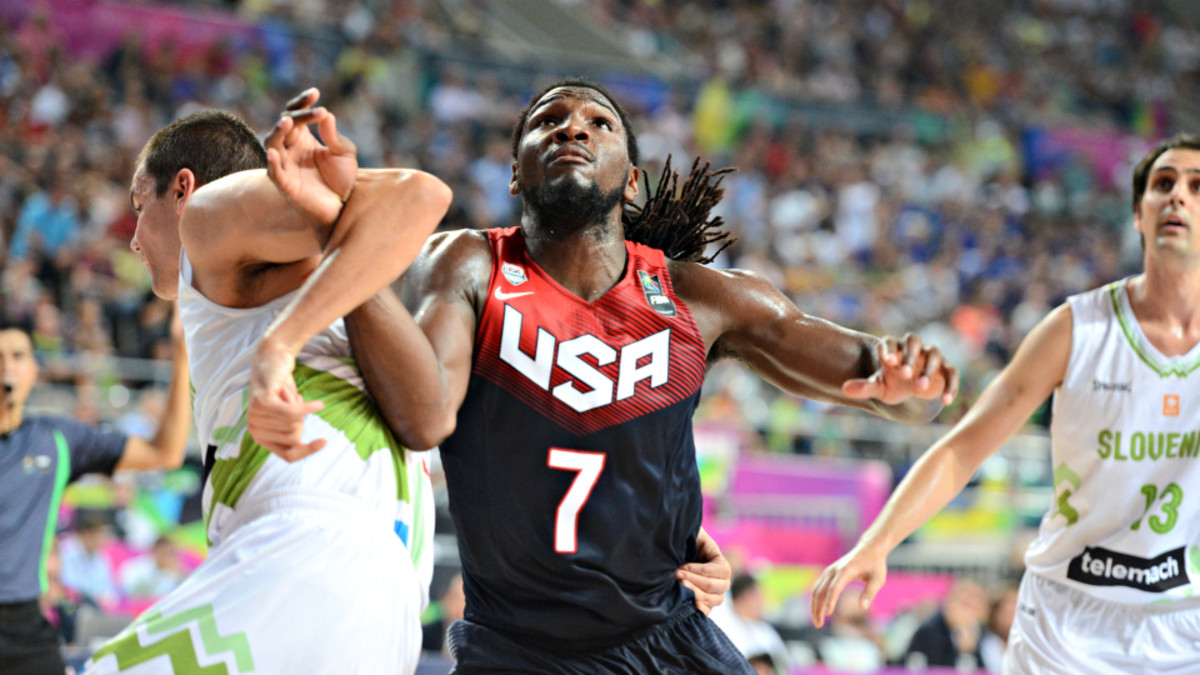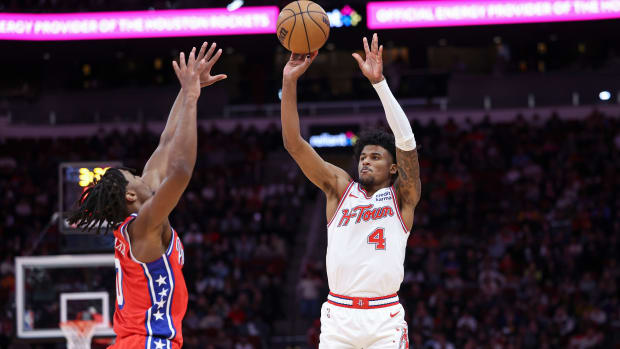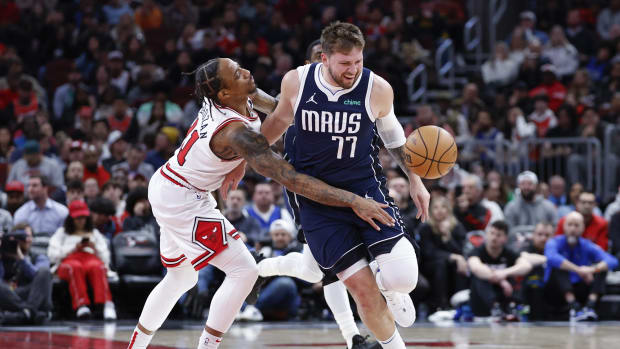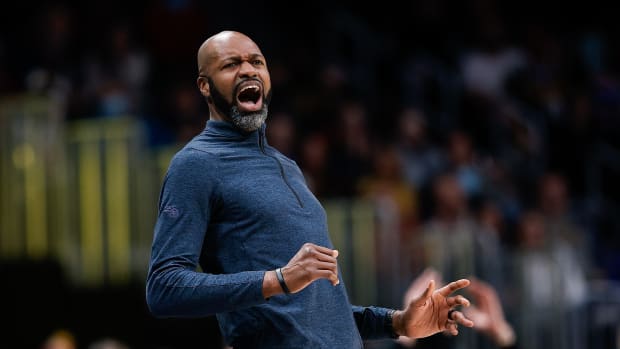
Team USA dominates Slovenia on the boards to advance to FIBA semifinals
Slovenia, like each of Team USA's previous opponents at the FIBA World Cup, just didn't have enough. Tuesday's quarterfinal matchup saw the Europeans keep close with the Americans for a solid half until a 37-22 third quarter broke open the game. An even more lopsided fourth quarter (33-12) followed, squelching what had at one point been a competitive atmosphere. The glaring difference in roster quality ultimately took its toll.
Anthony Davis (13 points, 11 rebounds, three blocks) and Kenneth Faried (14 points, 10 rebounds) both posted double-doubles while overwhelming the Slovenian bigs. Derrick Rose and Kyrie Irving contributed a dozen points apiece while Klay Thompson (20 points, 4-of-8 shooting from deep) continued his dominance outside of the shorter FIBA three-point line. James Harden even rebounded from a horrid start, finishing 4-of-5 to total 14 points after missing his first nine attempts. Team USA could have done far better offensively, yet this effort was good enough to cement the most lopsided outcome of the elimination rounds thus far. Below are three thoughts on the win.
• Team USA kept the offensive glass squeaky clean. This was hardly the tightest performance by the Americans at the FIBA World Cup, yet Slovenia was held at arm's length throughout based on their deficit in offensive rebounding. Slovenia's bigs are the weak link of its roster and on Tuesday were at a loss in dealing with Davis' length and Faried's energy. Those two were consistently in position to clean up their teammates' misses, building and preserving a lead even as Team USA shot 38 percent from the field in the first half. By game's end Team USA had missed 46 field goals and snared second-chance opportunities on over half of them.
Even the guards got into the act. Rose and Irving snuck in for a combined five offensive rebounds, in part because Goran and Zoran Dragic were so antsy to jump-start every fast break opportunity that they failed to box out. Team USA, on the other hand, managed to make a game-changing effort on the offensive boards while balancing its transition defense well, protecting against those occasions when either Dragic was able to push the ball down-court quickly. That equilibrium played a critical role in Team USA wearing down Slovenia, after which a second-half explosion squared the game away.
Rose faring well in Team USA stint, could lead to new role as facilitator
• This was Derrick Rose's best game of the tournament.
We should know better than to stretch the importance of this one game too far, just as we should know not to use Rose's previous struggles as self-evident reason for pessimism. This is all still very early in Rose's comeback push and he has a ways to go before reclaiming the mantle of a superstar. Still, it was fun to see Rose firing off at full speed and hitting a familiar frequency. It's been a long road back for Chicago's favorite basketball son.
• Team USA's offense again goes stagnant. Even in mounting the second-highest scoring total of the entire tournament (and the single highest scoring total against a non-Egyptian opponent), the methods of Team USA's offense left something to be desired. This kind of performance was clearly good enough to wipe out Slovenia, a team incapable of denying Team USA second chances and one shallow in overall talent. The same cannot be said of Lithuania, Team USA's next opponent, nor Spain, the single toughest matchup on the board. In those games the half-court offensive execution will need to be far, far better -- a responsibility that begins with the guards. It's been an iffy tournament run for those in command of Team USA's offense, which too often bogs down in one-on-one play and settles for semi-contested mid-range shots.
This is, without caveat, the most talented team in the field. A roster of this caliber can do better than a runner within the teeth of the defense or a pull-up jumper early in the shot clock. But the ball has to move and the players have to commit to an unselfish style outside the safety of designed plays. All goes well enough when Team USA works within its pre-planned choreography, yet a call for improvisation too often ends with Irving, Harden or Stephen Curry trying to do too much. It was the dead weight of that instinct that kept this game within seven points after two quarters of play and that could put Team USA into actual trouble against the better opponents to come.


































